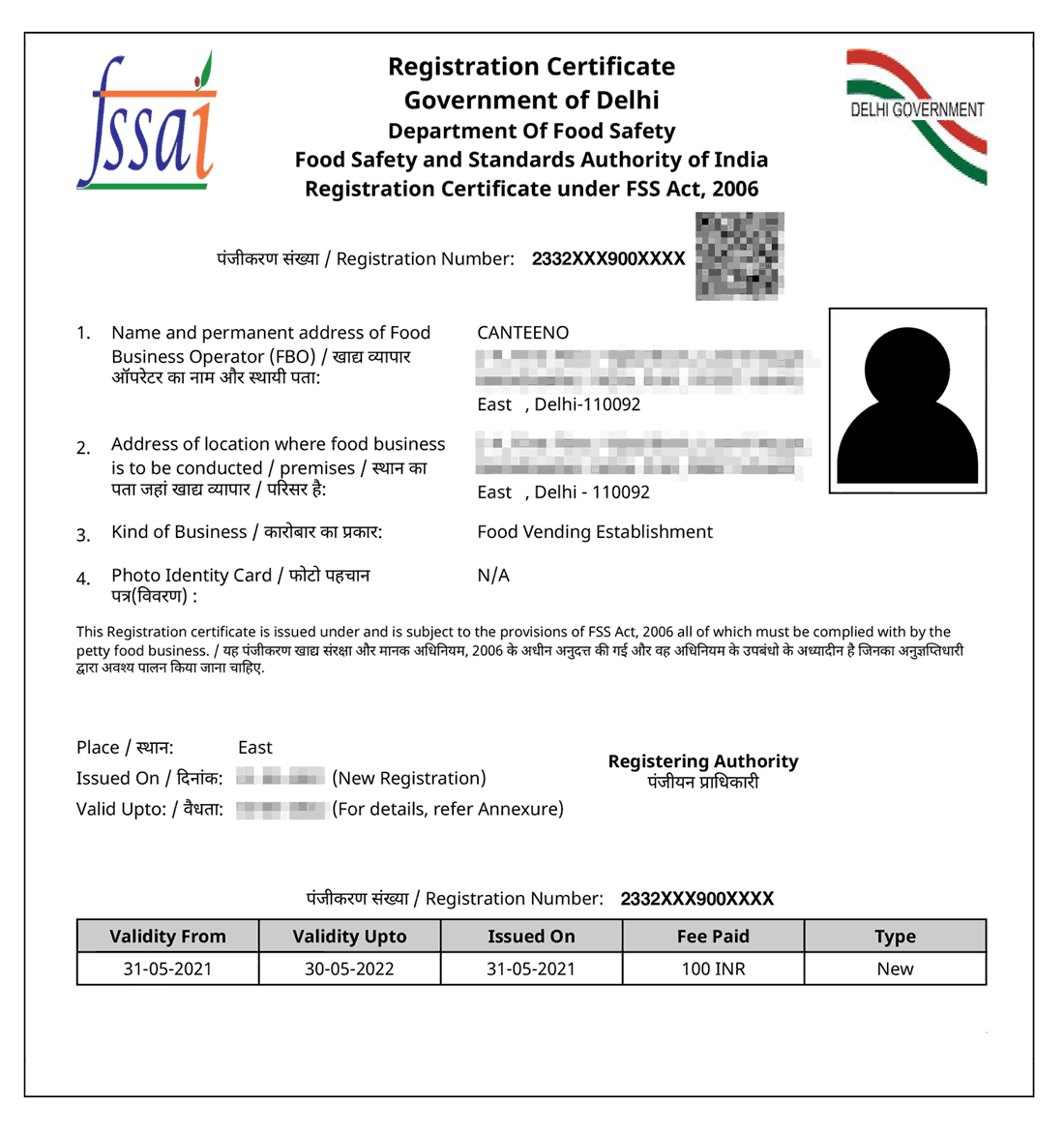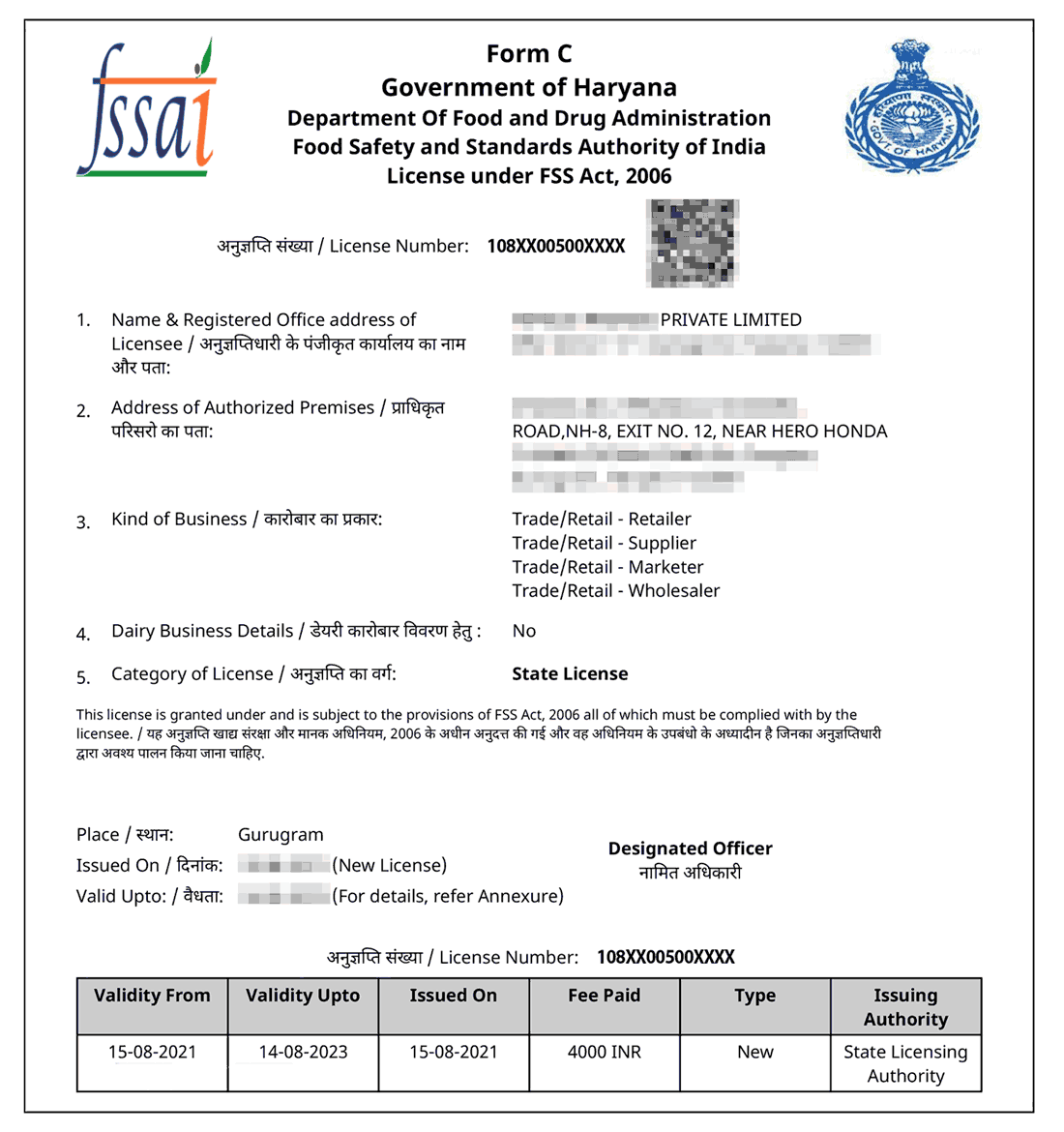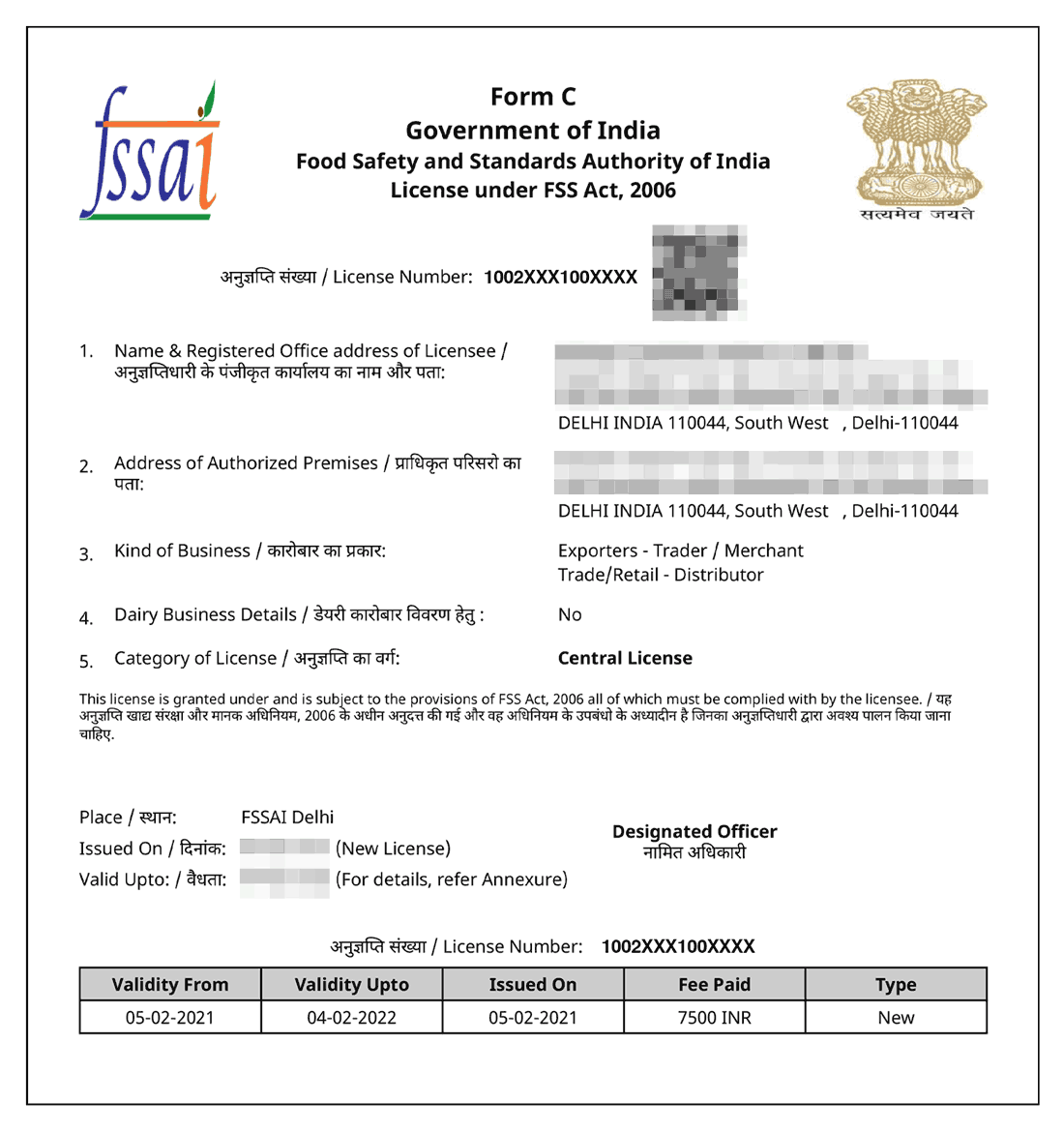Updated on January 30, 2026 07:27:47 AM
The FSSAI License for Packaged Foods is a compulsory certificate provided by the Food Safety and Standards Authority of India (FSSAI) to guarantee the safety, quality, and cleanliness of food sold in packaged form. Whether you are a food manufacturer, marketer, distributor, or retailer of packaged food items, this license is necessary to operate in India legally.
Packaged foods are products such as chips, biscuits, drinks, ready-to-eat food, sauces, etc. Since these products have a direct effect on public health, FSSAI lays down strict regulations regarding labeling, ingredients, shelf life, and safety requirements. With the FSSAI license, food companies can show that they follow these norms, which instills consumer confidence and increases market reputation.
There are three categories of FSSAI license based on the size and type of business: Basic Registration, State License, and Central License. The right license depends upon turnover, production capacity, and distributional reach.
Apart from being a legal mandate, the FSSAI license facilitates improved branding, simplified export approvals, and hassle-free operations throughout India. It also safeguards businesses against fines and ensures consumers receive safe and reliable packaged food items.
FSSAI License for Packaged Foods [Sample]



The FSSAI License for Packaged Foods is a compulsory clearance granted by the Food Safety and Standards Authority of India (FSSAI) to companies dealing in the processing, manufacturing, packaging, selling, or distributing of packaged food products. It ensures that the food being provided to customers is safe and hygienic according to the standards prescribed by the authority.
Any company that engages in packaged foods like snacks, drinks, ready-to-eat foods, or frozen products has to acquire this license prior to the commencement of business. The license is not only a legal document but also an indicator of quality and trust that guarantees consumers the safety of the product for consumption.
The following are the significant advantages of getting an FSSAI License for packaged food businesses:
Here is a table listing the documents required for Basic Registration, State License, and Central License under FSSAI for packaged food businesses:
| License Type | Required Documents |
|---|---|
| Basic Registration |
|
| State License |
|
| Central License |
|
Acquiring an FSSAI License for Packaged Foods: A Step-by-Step Guide
The first thing that the applicant needs to do is to access the official website of FoSCOS, the Food Safety Compliance System.
Before applying, it is very important to decide whether a Central or State License is to be obtained. Each location should be separately entered to decide on its eligibility.
Once the website is loaded, click "Sign-up" for the desired license type. Fill in the registration form with contact details, whereby the phone number and email address provided will be active and accessible.
Choose a unique username and set up a password during registration. Upon completion of the form, click 'Register' to finalize the sign-up.
Confirmation of account activation via SMS and email to the applicant after successful registration.
Use your new credentials to log into the system and fill out the online FSSAI Registration Application Form. All details should be correct and complete.
Before submitting online, print a copy of it. Once submitted online, a reference number will appear on the screen, very important for tracking the application process.
Within 15 days of applying online, a photocopy of the filled application form should be sent to the respective regional or state FSSAI office. This is so that the application is considered and processed.

FSSAI License Fees for Packaged Food vary based on the license type. The government fee starts at ₹100 for Basic Registration, ₹2,000 for a State License, and ₹7,500 for a Central License. Additionally, professional fees for application processing and documentation support are ₹2,000 for Basic Registration, ₹3,500 for a State License, and ₹5,000 for a Central License.
| FSSAI License Type | Government Fee (INR) | Professional Fee (INR) |
|---|---|---|
| FSSAI Basic Registration | ₹100 | ₹ 2,000 |
| FSSAI State License | ₹2,000 | ₹ 3,500 |
| FSSAI Central License | ₹7,500 | ₹ 5,000 |
Note: The aforementioned fees are exclusive of GST
Gaining an FSSAI license for packaged food is not only a legal necessity but also a critical step towards establishing a reliable and successful food business. It ensures that your foods are up to the highest levels of food safety, hygiene, and quality as required by Indian law.
Whether you are a small startup or a well-established brand, an FSSAI license increases your credibility among consumers and regulatory bodies alike. It also facilitates smooth operations, improved market access, and enhanced customer confidence.
Professional Utilities simplify registrations, licenses, and compliances for your business. With experienced guidance and nationwide support, we help you complete every requirement efficiently and effectively.






"Explore how Professional Utilities have helped businesses reach new heights as their trusted partner."

It was a great experience working with Professional Utilities. They have provided the smoothly. It shows the amount of confidence they are having in their field of work.

Atish Singh
It was professional and friendly experience quick response and remarkable assistance. I loved PU service for section 8 company registration for our Vidyadhare Foundation.

Ravi Kumar
I needed a material safety data sheet for my product and they got it delivered in just 3 days. I am very happy with their professional and timely service. Trust me you can count on them.

Ananya Sharma
Great & helpful support by everyone. I got response & support whenever I called to your system. Heartly thanx for Great & Super Service. Have a Great & Bright future of team & your company.

Prashant Agawekar
Thank you so much Professional Utilities team for their wonderful help. I really appreciate your efforts in getting start business. Pvt Ltd company registration was smooth yet quick.

Abhishek Kumar
I applied for Drug licence and company registration and their follow-up for work and regular updates helped me a lot. They are happily available for any kind of business consultancy.

Vidushi Saini
Great experience went to get my ITR done, process was quite convenient and fast. Had a few queries, am happy about the fact those people explained me all things I wanted to know.

Taniya Garyali
Great services provided by Professional Utilities. They are best in this industry and the best part is their prices are so affordable. Kudos to you. Now you guys are my full-time consultant.

Aftab Alam
Frequently Asked Questions (FAQs)
Yes, it is required for all such businesses engaged in the manufacturing, distribution, or sale of packaged foods in India.
There are three: Basic Registration, State License, and Central License, depending on the size and turnover of your business.
No, selling packaged foods without an FSSAI license is against the law and can result in a penalty or business shutdown.
It takes around 7–30 working days based on the type of license and document checking.
Yes, even online businesses for selling packaged foods must have an FSSAI license to remain legal.
The license is valid from 1 to 5 years and needs to be renewed before expiry.
Yes, if you have operations in more than one state, you require a different State License or a Central License.
The 14-digit FSSAI license number needs to be printed on each food package.
Speak Directly to our Expert Today

Reliable

Affordable

Assured
Industries Served by
Professional Utilities
Apparels
Footwear
Furniture
Gems and Jewellery
Tourism & Hospitality
Consumer Electronics
Chemicals
Telecom
Oils & Gas
Hotel
Railways
Liquor
Health & Medical
Food Processing
Dangerous/ Haz. Goods
Tea & Coffee
Capital Goods
Recycling
Rubber
NGOs
Silk
Handloom
IT & BPM
Steel
Automobile
Tobacco
Constructions